High intelligence often sabotages health outcomes. New research reveals why knowing more doesn’t mean doing better and what actually works.


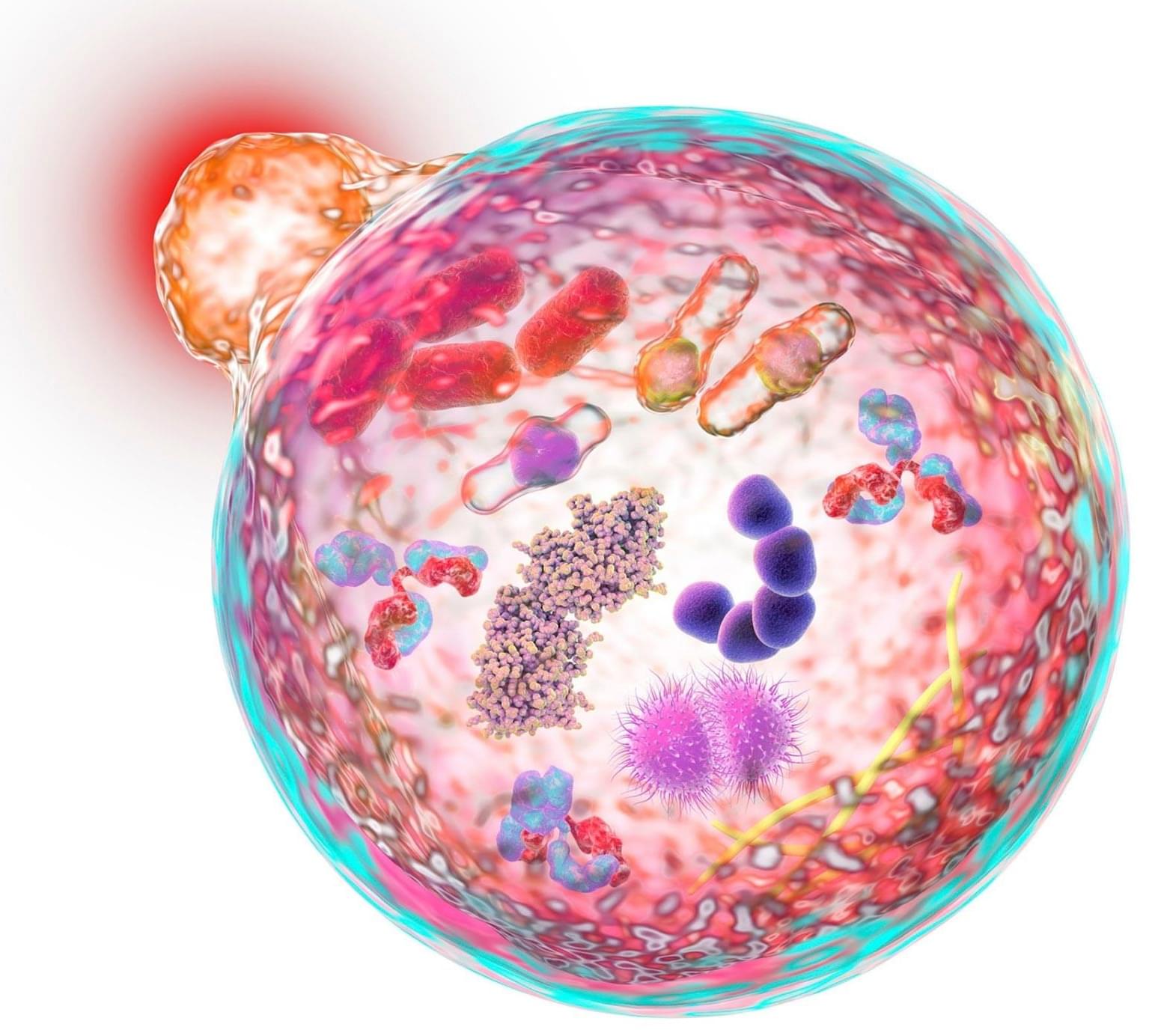
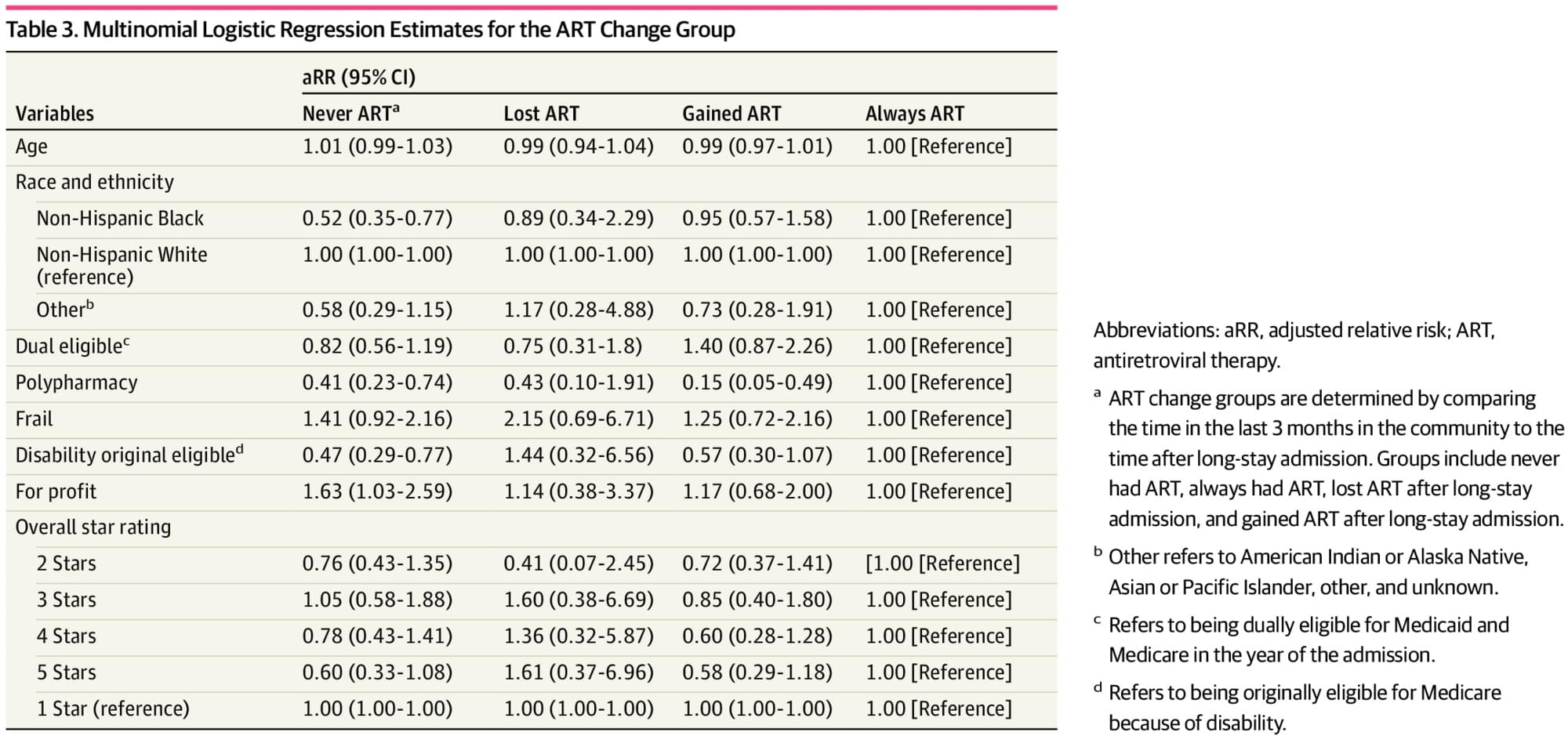
Access to antiretroviral therapy (ART) appears to improve when Medicare beneficiaries with HIV transition to long-term nursing homes, but nursing homes miss opportunities for initiation, as most stays without ART never had ART before admission.
This cohort study aimed to understand changes in ART use for Medicare beneficiaries with HIV transitioning from the community to long NH stays. We found that among a group with a mean age of 61 years, ART use seemed to improve after the transition, that there was no ART use before or after the transition for nearly one-quarter of our sample, and that comorbidities and frailty had no association with ART changes. These findings are contrary to our hypothesis that posited lower ART use after the transition and that lower NH quality rating would be associated with even lower ART use. These findings are critically important to our understanding of NH care for people with HIV because they dispel select concerns that the transition to long-stay NH resident and the transition from Medicare Part A to Part D medication benefits are opportunities for reduced ART use.
Few NHs have experience caring for people with HIV, with many seeing only 1 or 2 individuals in a 3-year span.9 Experience with HIV care correlates with better health outcomes in both the NH setting and the outpatient setting.8 Many community-based studies have found that better adherence to ART is associated with older age,29, 30 and 1 study of NH residents with HIV showed that longer duration of an NH stay was associated with better ART adherence,13 although that same study found that 21% of people with HIV in NHs had no ART. Without following people from the outpatient or community setting into the NH setting, these previous studies were limited in their generalizability because of selection bias; they examined only people with HIV using outpatient services, or only people with HIV using NHs.
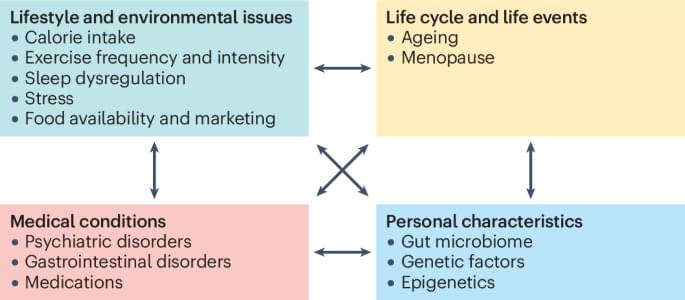
Hypothyroidism and hyperthyroidism are associated with gain and loss of body weight, respectively. This Review discusses the epidemiological evidence for weight changes in thyroid dysfunction, the role of thyroid hormone in weight regulation, the effect of treatment and the implications for population health.
In this video, Whitney, a registered dental hygienist, breaks down the viral headlines about a “tooth regrowth shot” being tested in Japan. She explains the real science behind the drug — how it targets the USAG-1 protein to potentially reactivate dormant tooth buds — and clears up common misconceptions about tooth regeneration research. From animal trials to current human safety studies, Whitney dives into what’s fact, what’s hype, and what this breakthrough could mean for the future of dentistry.
https://bit.ly/free-oral-hygiene-rout… SHOP MY STOREFRONT: https://bit.ly/4jgJPdG • Born With Missing Teeth? (Hypodontia)
• What Happens If You Don’t Replace Your Mis…
• Regrowing vs Remineralizing Tooth Enamel 🦷 WANT MORE TEETH TALK? ▶ newsletter: https://bit.ly/ttg-subscribe ▶ bettermouth app: https://www.bettermouth.com/ ▶ website: https://teethtalkgirl.com ▶ shop happyteeth: https://givehappyteeth.com/ ▶ amazon storefront: https://www.amazon.com/shop/teethtalk?tag=lifeboatfound-20?tag=lifeboatfound-20 🦷 SUPPORT THIS CONTENT: ▶ patreon:
/ teethtalkgirl ▶ youtube:
/ @teethtalkhttps://www.france24.com/en/live-news… https://pubmed.ncbi.nlm.nih.gov/33579… https://www.kyoto-u.ac.jp/en/research… https://news.harvard.edu/gazette/stor… https://trial.medpath.com/news/7c38d8… https://theweek.com/health/the-scienc… 🦷 BACKGROUND MUSIC: artlist.io 🦷 NOTE: This video does not provide medical advice and is intended for informational purposes only. Always seek the advice of your dentist or other qualified health provider with any questions you may have regarding a medical or dental condition. Never disregard professional medical advice or delay in seeking it because of something you have heard or seen on social media. ☮️ ❤️ 🦷
https://bit.ly/4jgJPdG
• Born With Missing Teeth? (Hypodontia)
• What Happens If You Don’t Replace Your Mis…
• Regrowing vs Remineralizing Tooth Enamel.
▶ newsletter: https://bit.ly/ttg-subscribe.
▶ bettermouth app: https://www.bettermouth.com/
▶ website: https://teethtalkgirl.com.
▶ shop happyteeth: https://givehappyteeth.com/
▶ amazon storefront: https://www.amazon.com/shop/teethtalk?tag=lifeboatfound-20?tag=lifeboatfound-20.
▶ patreon: / teethtalkgirl.
▶ youtube: / @teethtalk.

Researchers in China report that global incidence rates of psoriasis rose slightly from 1990 to 2021 and are projected to continue rising for both men and women through 2050.
Psoriasis is a chronic inflammatory skin disease that continues to impose a growing global burden. Understanding the rate of increase is critical for informing public health strategies, improving health care access, and supporting early diagnosis worldwide.
In the study, “Global Psoriasis Burden and Forecasts to 2050,” published as a Research Letter in JAMA Dermatology, researchers used a time-series forecasting analysis to project global psoriasis incidence through 2050 and to address age, sex, and regional differences in burden.
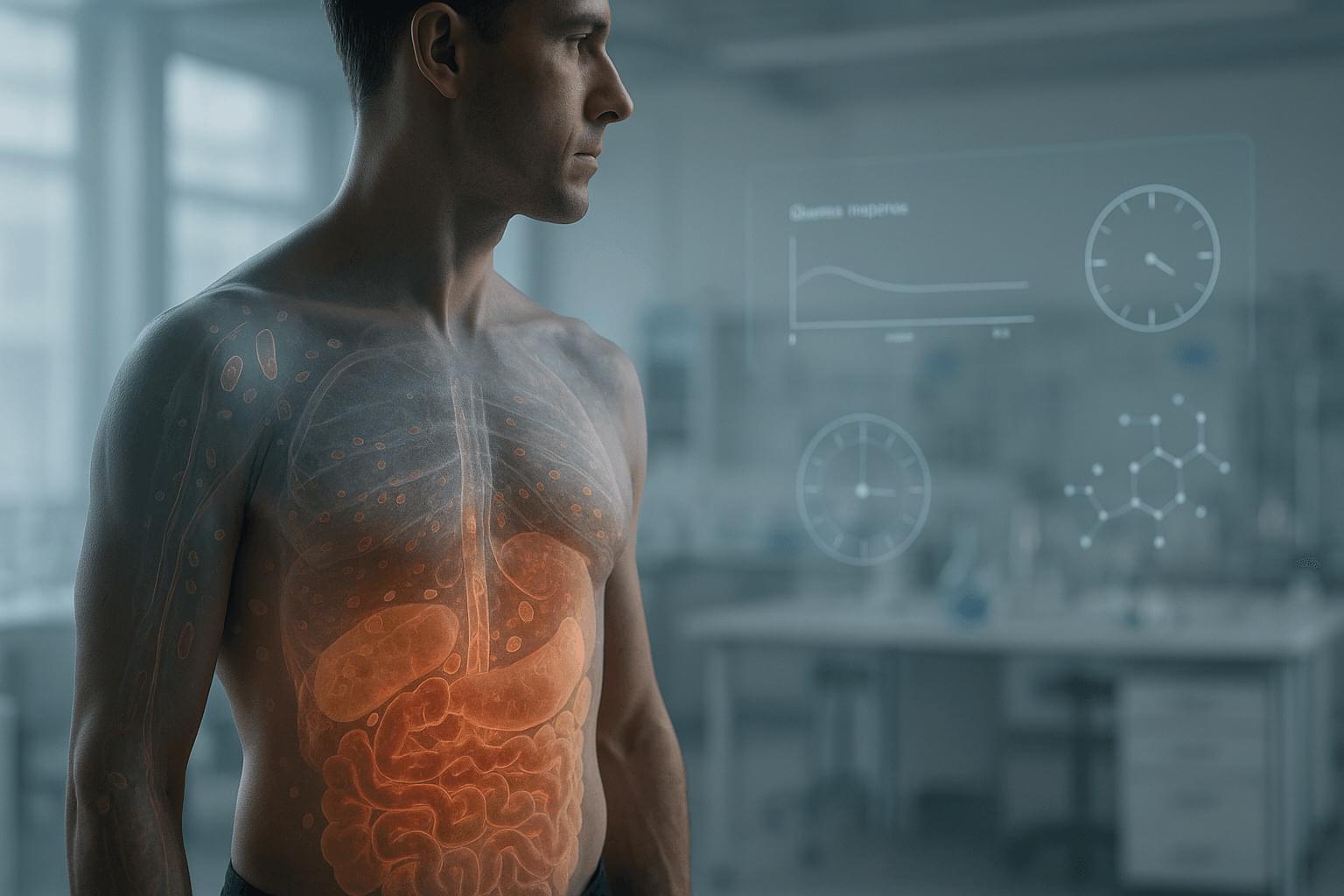

This Commentary by Md Saidur Rahman, Kyeong A. So & Jae-Wook Jeong discusses Sylvia C. Hewitt et al.: https://doi.org/10.1172/JCI193212
1Department of Obstetrics, Gynecology & Women’s Health, University of Missouri School of Medicine, Columbia, Missouri, USA.
2Department of Obstetrics and Gynecology, Konkuk University School of Medicine, Seoul, Republic of Korea.
Address correspondence to: Jae-Wook Jeong, 1,030 Hitt Street, NextGen Precision Health Building, Columbia, Missouri 65,211, USA. Phone: 573.884.1882; Email: [email protected].

Researchers at UCLA have developed an artificial intelligence tool that can use electronic health records to identify patients with undiagnosed Alzheimer’s disease, addressing a critical gap in Alzheimer’s care: significant underdiagnosis, particularly among underrepresented communities.
The study appears in the journal npj Digital Medicine.
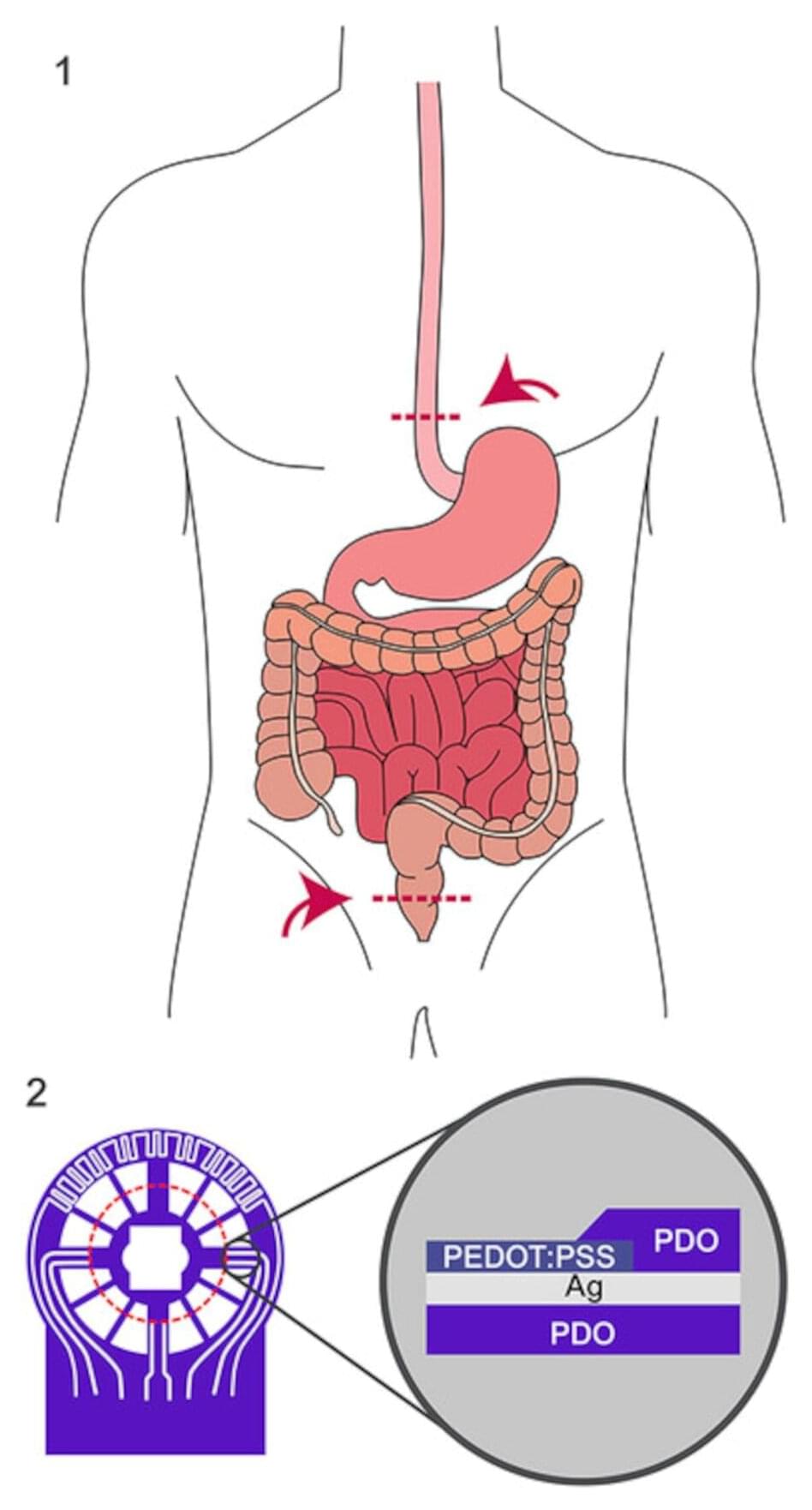
An interdisciplinary research team from Dresden University of Technology (TUD), Rostock University Medical Center (UMR) and Dresden University Hospital has developed an innovative, implantable and fully absorbable sensor film. For the first time, it enables reliable early detection of circulatory disorders in intestinal anastomoses—one of the riskiest surgical procedures in the abdominal cavity. The results have now been presented in the journal Advanced Science.
Intestinal anastomoses, which is the surgical connection of two sections of the intestine after the removal of diseased tissue, carry a considerable risk of post-operative complications. In particular, circulatory disorders or immunological reactions can lead to serious consequential damage or even death within a short period of time. However, direct monitoring of the suture site has not been possible until now, which often entails corresponding risks for patients as well as considerable costs due to follow-up operations and long hospital stays.
Based on this specific medical need, the interdisciplinary network of the Else Kröner Fresenius Center (EKFZ) for Digital Health at TUD and Dresden University Hospital brought together key experts from Dresden and Rostock.